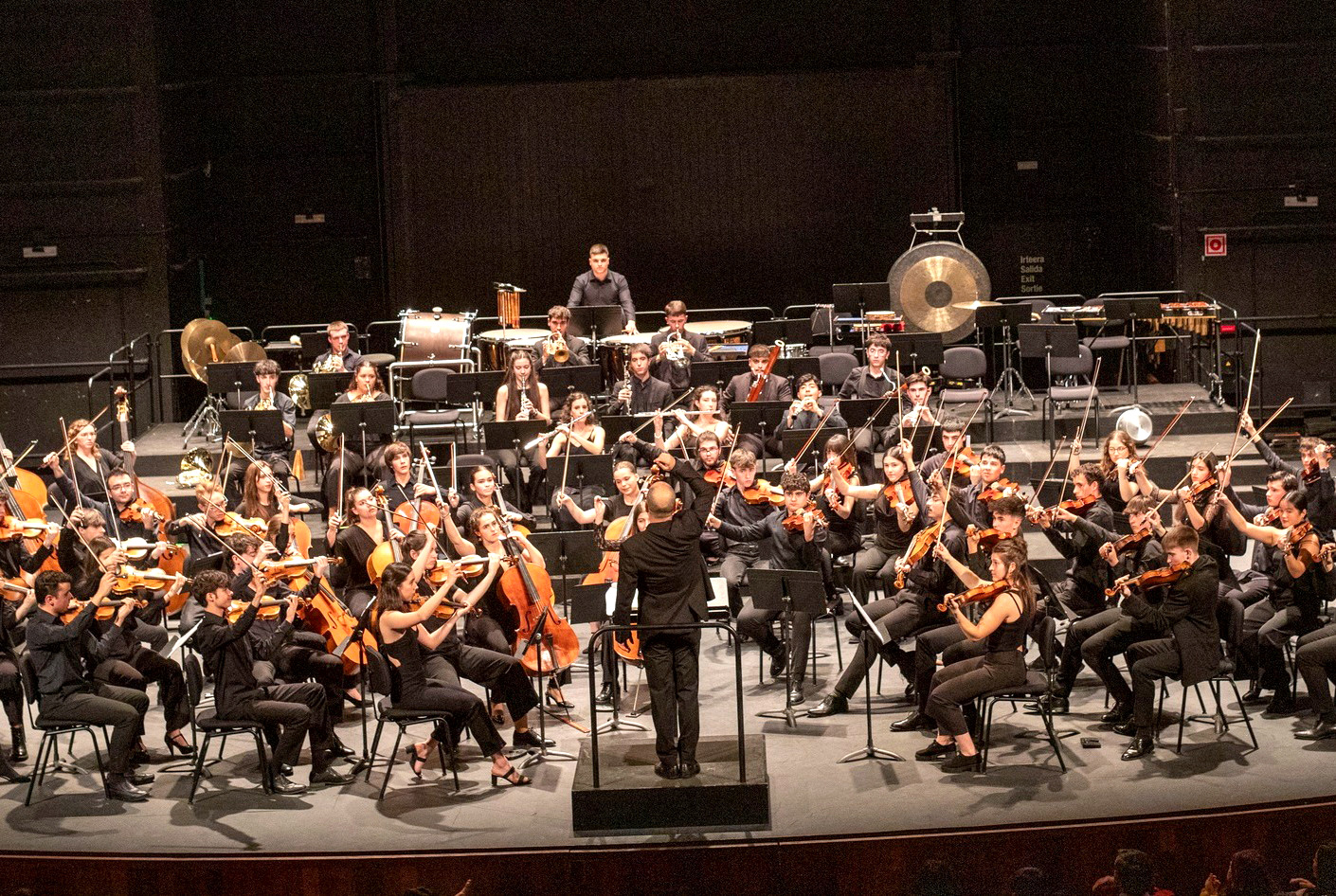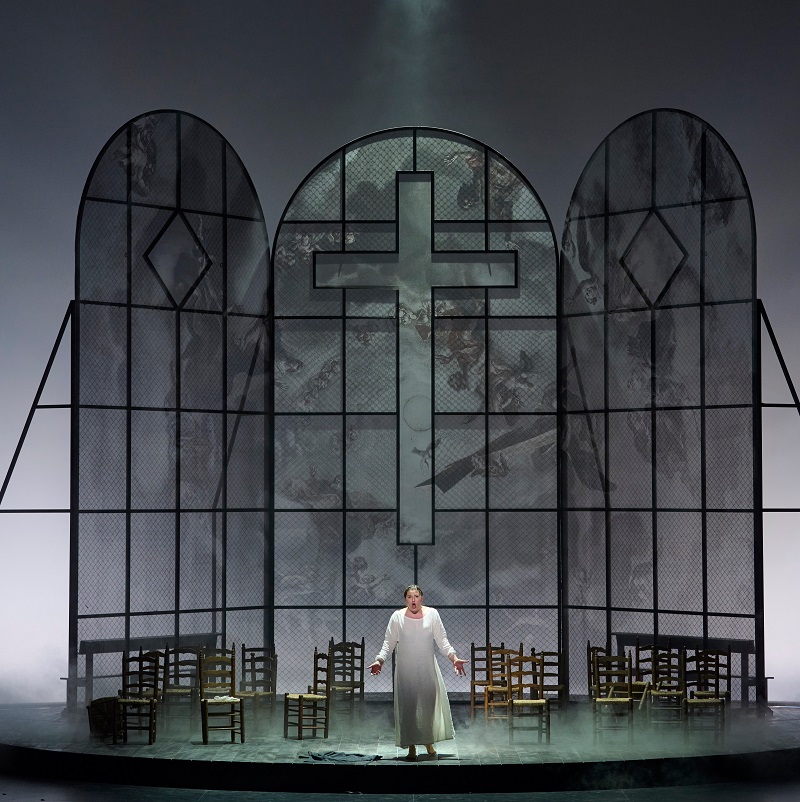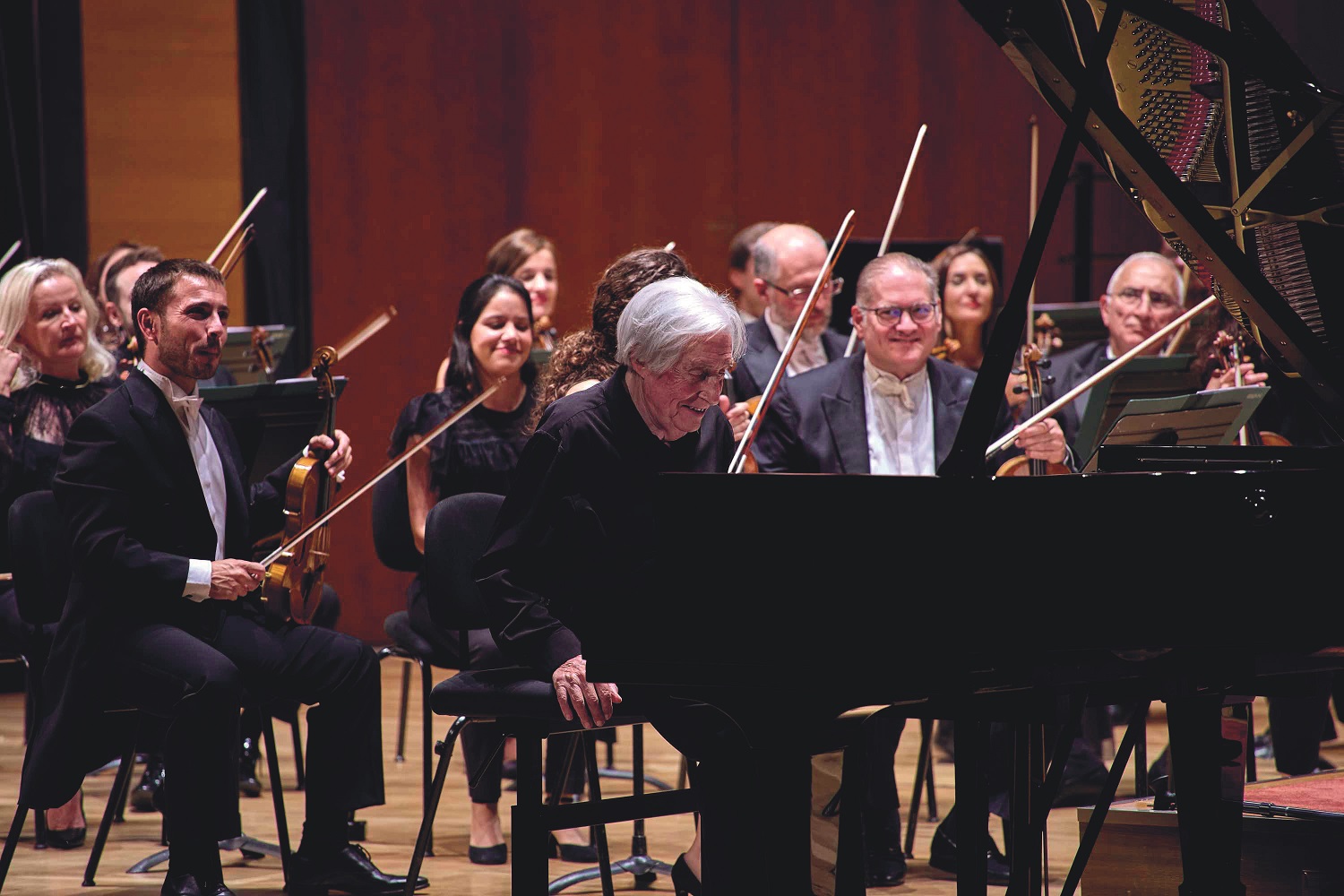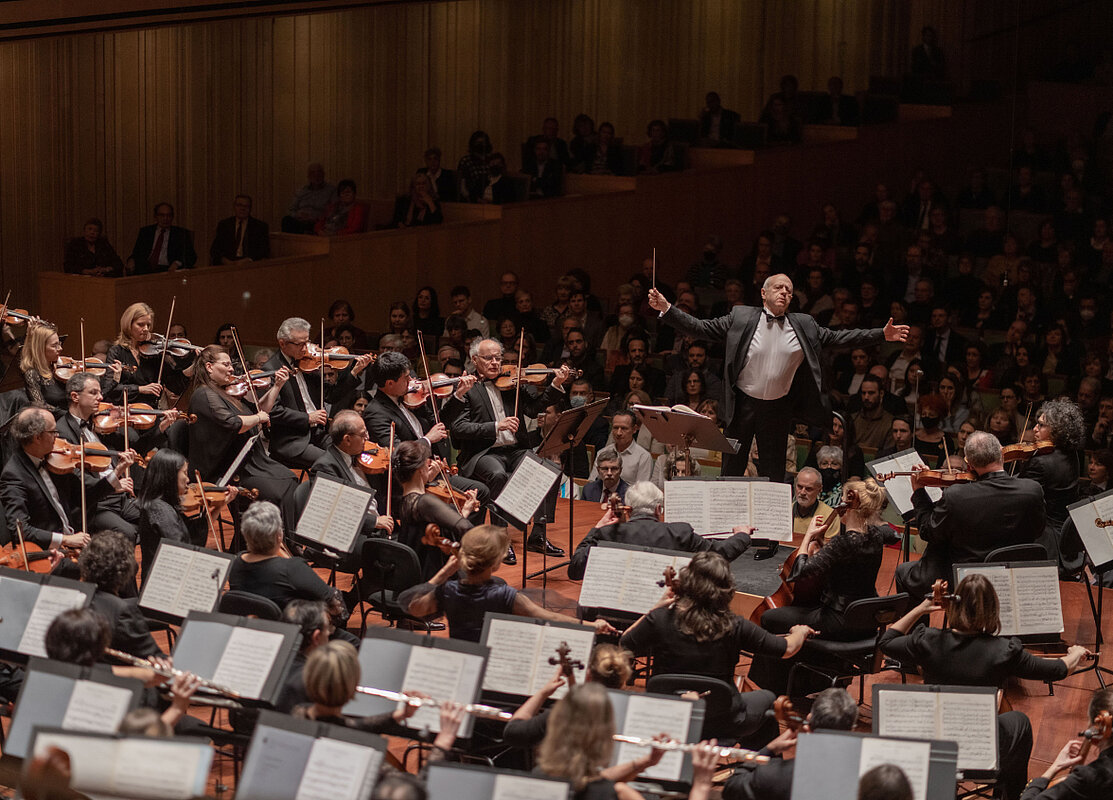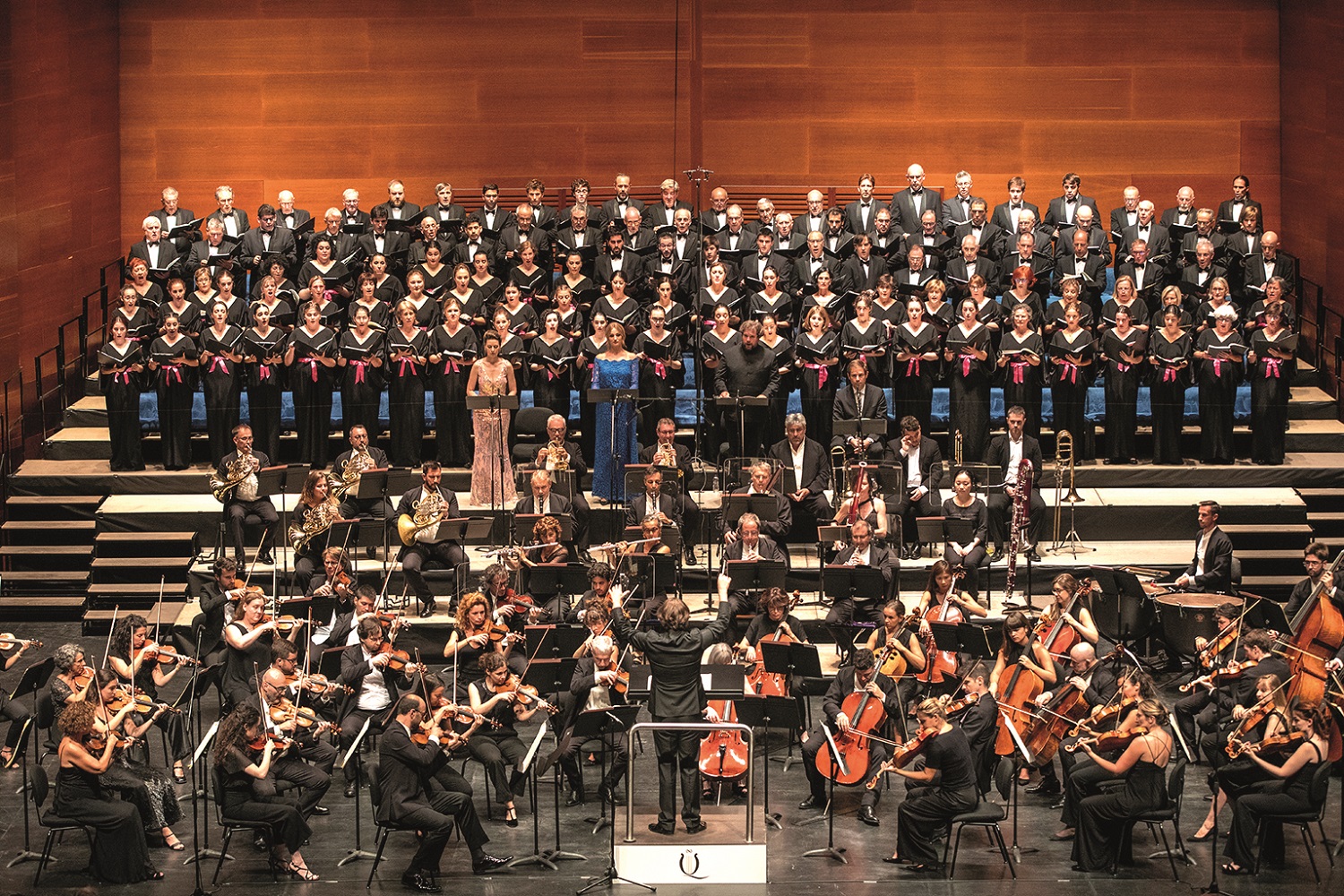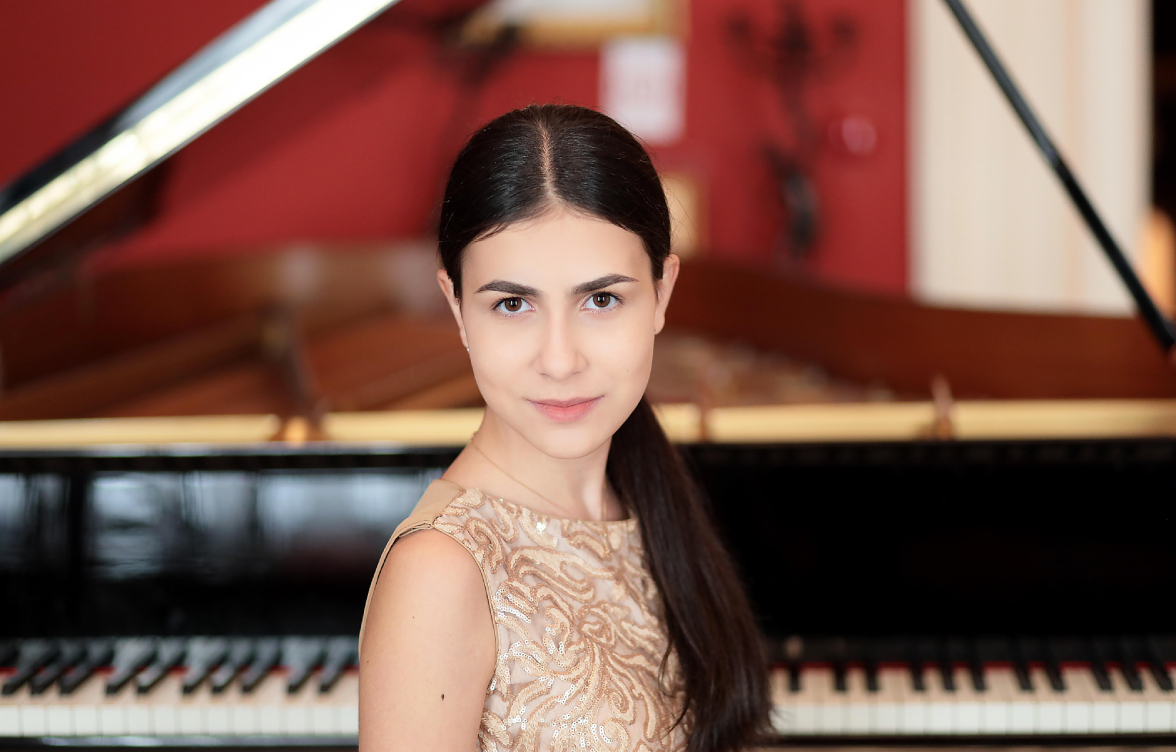"Classical music is highly valued in Basque society"
- Ane Legarreta (Galdakao, 1994) has had to take a 20-year academic tour to become director. Being a woman and a young woman, she has a different perspective of the sector. He has worked as director in the Galdakao Music Band and in the Music Society of Getxo, and in 2020 he had the opportunity to run the Euskadi Orchestra. He says that without music, life lacks the flesh.
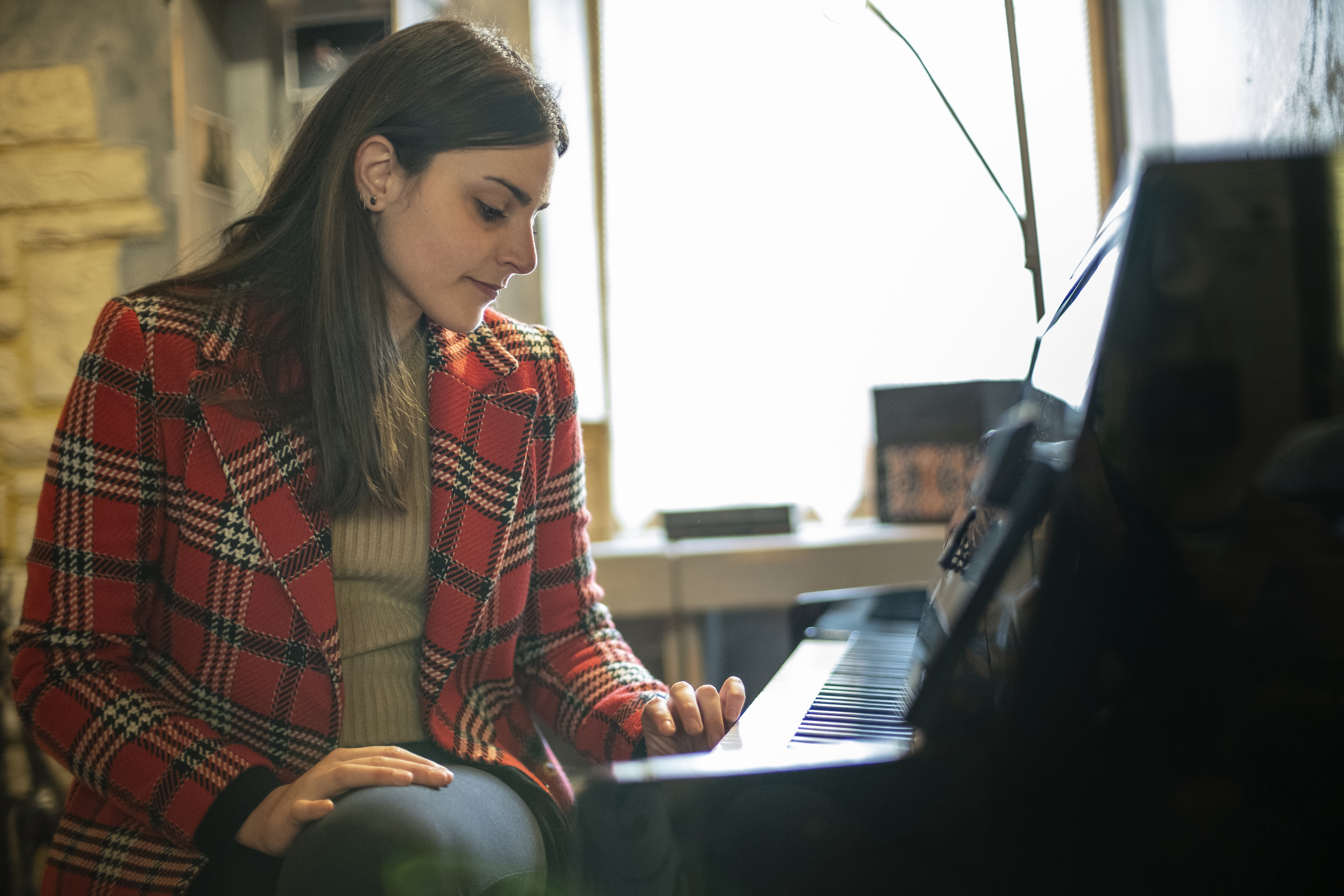
When I was a child, I started learning
Música.En. My house has always told me “whatever you want to do, but do it well.” I chose that at age 5 I wanted to study music and conjugated it to other after-school activities. My first steps at Galdakao Music School, for me, spent time. I would never have imagined that it would be my profession.
This is not the case, but there are those who abandon musical studies. Why do you think it happens? The work
before the understanding of music is very long, it takes time to internalize the concepts. Until you are able to express yourself through music, you may need years and years. It is normal that many children do not achieve this motivation. Pedagogy should be adapted, made more practical, so as to be able to explore the instruments from childhood.
However, is it never too late to learn to play an instrument?It is never too
late to study, I recommend it to everyone. Without music life lacks substance; it helps us remember concrete moments, we relate it to feelings and places… As the writer Fran Lebowitz says, it is a drug that does not harm.
Beethoven, Mozart, Bach or Wagner are the composers who come to mind when talking about classical music. Where are the women?
When we think about Western classical music composers and directors, 100 percent of them are white European men. But there are books and documents that collect stories from unique women, like Nadia Boulanger and Clara Schumanni. If I had to recommend a book, I would recommend Feminism and music (Feminism and music) by Pilar Ramos.

What reception does classical music have in society?
Classical music is highly valued in Basque society. There is nothing else to do with the quality of symphony orchestras. We are very lucky compared to the level of the state. The problem is that music needs a long process of interiorization and that in this sense it is very easy to give in, especially among young people. We should give a second chance to clá music sica.Con the objective of
bringing citizenship closer to classical music, several groups have recorded versions with the Euskadi Symphony Orchestra. Are you in favour of these crossings?
Totally. The mix between the groups that are heard today and the symphony orchestras are needed for this reason. Furthermore, if the molding work is well done, it does not have to change the quality. Fernando Velázquez’s work for the Orchestra of the Basque Country is excellent, for example.
Are
you a woman, a young man… have you had any difficulty walking your way?
Sometimes I've found it hard to be a woman, yes. We have few women in the world of managers, but, well, the community is strong and I've found pretty people on the way.
What is the cause of the shortage of women in this sector?In the symphony
orchestras and also in their direction, as in many other trades, women were forbidden to participate. A violent fact: At the concert of the new year in Vienna, women were not able to participate in the orchestra until 1997! And it has not yet been any woman who led this concert… Is
music a precarious subject? Is it difficult to get a job? In this
sector there is no possibility of standing still, you have to make daily contacts, compare creative processes, share testing techniques to learn with others… If you move and do not abandon the desire to improve, you will find your way. Despite the fact that security measures have now made the situation difficult.
Is it incompatible to be a music director with listening to the reggaeton or the trapa?
I hear everything, I think every moment has its music. I do not particularly like the picture, but perhaps in a few years we will see it from a different perspective; after all, music changes with society and is also a reflection of that society. It is true that disdaining music with an “easy” creative process is a common practice. But anybody can't do it, there's limp. I imagine where they've come together to create a song, what they've talked about, what they've been based on -- I try to analyze it from that point of view.
In music, as in life, do studies not stop?
That's right, and as in life, the more you know, the less you know. I am referring not only to music, but also to the history and fundamentals behind that music. Classical music hides a lot of stories behind notes.
old I enrolled in Galdakao Music School, but I would never imagine it was my profession. At first I had difficulty choosing instruments; now I want piano and harp. I work today at the Music Society of Getxo. In Sorota we met the Bele Symphonic project, but the plague has delayed the concerts. Looking to the future, my dream is to create an orchestra, it's not easy, but I'll try at least."
Basque Country Herriko Gazte Orkestra. Winter Meeting
Director: Iker Sánchez.
Narrator: Kepa Errasti.
Programme: Works by Britt and Beethoven.
Place: Victoria Eugenia Theatre, Donostia.
Day: 2 January.
-----------------------------------------------
After 27 years, we... [+]
Il Trittico de Puccini
by: Symphony Orchestra of Navarra and Opera Choir of Bilbao.
Scene address: Paco Azorín.
Soloists: The great C. Alvarez, A. Blancas, M. Berti C. Isotton, K. Mattila, A. Ibarra, S. Esparza e I. The hotel.
Where: Euskalduna Palace of Bilbao.
... [+]
When we talk about French composers, we think of Claude Debussy and Ravel. There are those who have fun defending one or the other as the best French composer of all time. Frankly, two geniuses have been absolute, as a result of the circumstances of their time. They were a very... [+]
Opera groups Don Pasquale de
Donizetti: OSE and Bilbao Opera Choir.
Soloists: S. Orfila M.J. Moreno, F. Demuro, D. Del Castillo, P.M. Sánchez.
Stage Director: Emiliano Suárez.
Scenography Alfons Flores.
Place: Euskalduna Palace
Date: 19 October.
... [+]
Concert organized by the Columbus Foundation within the RenHagan Music Festival.
Bilbao Symphony Orchestra.
Address: Ramón Tebar.
Soloist: Joaquín Achúcarro.
Programme: Works by Guridi, Grieg and Brahms.
Place: Euskalduna Palace of Bilbao.
Date: 13 September.
... [+]
Quincena Musical of San Sebastian Orchestra
of the Basque Country: Address: J. Rohrer.
Orfeón Donostiarra: Address: J.A. Sáinz Alfaro.
Soloists: The great C. Reiss V. Karkacheva M. Schmitt, H. Müller-Brachmann.
Programme: In the Solemnis Mass of Beethoven, op. 123.
Place:... [+]
Sheet: Quincena Musical from San Sebastian. Kursaal Auditorium Cycle.
Orchestre Philharmonique de Radio France
Address: Mikko Franck
Soloist: Sol Gabta (cello).
Programme: Works by Debussy, Lalo, Ravel and Stravinsky.
Place: Auditorium Kursaal.Fecha: 30... [+]
Sheet: Quincena Musical from San Sebastian. Kursaal Auditorium Cycle.
Orchestra Filarmónica della Scala de Milan. Address: Riccardo Chailly
Programme: Works by Tchaikovsky and Ravel.
Place: Kursaal auditorium.
Date: 27 August
Perhaps the philharmonic of the Scala of... [+]
Sheet: Quincena Musical from San Sebastian. Cycle Victoria Eugenia.
Alexandra Dovgan (piano).
Programme: Works by Beethoven, Schumann, Rachmaninov and Scriabin.
Place: Victoria Eugenia Theatre. Date: 19 August.
The great composer Luciano Berio said that the virtuosos... [+]
Orchestra Budapest Festival. Address: Ivan Fischer.
Orfeón Donostiarra. Address: José Antonio Sainz Alfaro.
Soloists: Anna Lena Elbert (soprano), Olivia Vermeulen (contralto), Martin Mitterrutzner (tenor), Hanno Müller-Brachmann (low). Place: Audit Kursaal.Fecha: 18... [+]











